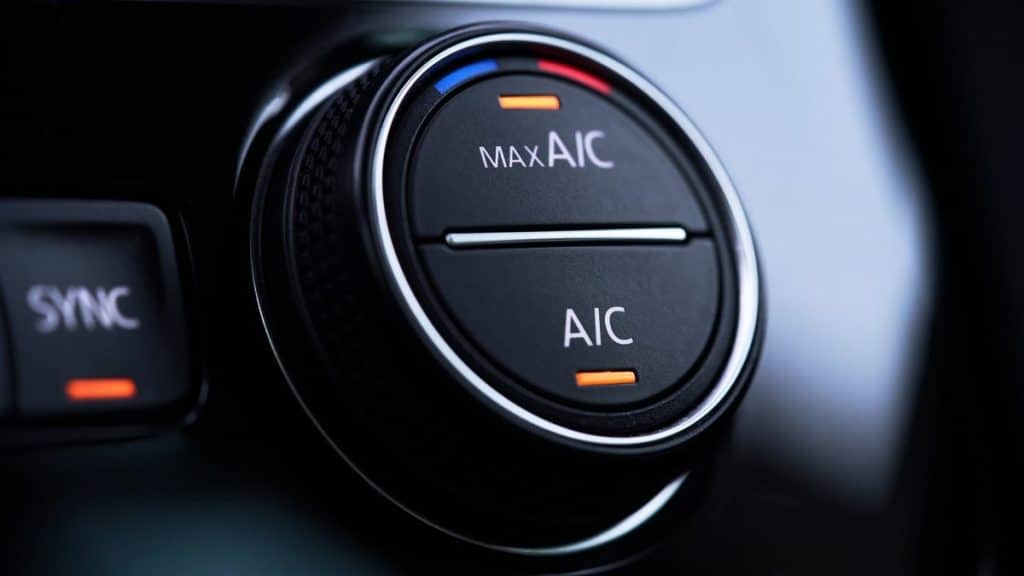Though many drivers only think about their car’s air conditioning system when it’s not working, this system is essential for a comfortable, reliable driving experience. The AC is responsible for many essential functions, from defrosting your windshield to maintaining a well-sealed system. Understanding how this system functions can help you keep it in top shape and avoid potential issues.
This guide will explain the key components of your vehicle’s AC system, why regular use and professional maintenance are vital, and common issues that can arise. If you ever encounter AC problems, finding reliable AC repair near you is the best solution to keep your system running smoothly.
1. Your Vehicle AC Has Many Components, and They’re All Important
Your vehicle’s AC system comprises several components, each playing a unique role in cooling the air inside your car:
- Compressor: Often considered the heart of the AC system, the compressor pumps refrigerant through the system, compressing and heating it up. The engine’s serpentine belt powers this component and is essential for the entire AC operation.
- Condenser: Located in front of the radiator, the condenser cools the hot refrigerant vapor into a liquid. It dissipates heat from the refrigerant as it moves through the system, preparing it for the next cooling stage.
- Dryer: The dryer, also known as the receiver-drier or accumulator, removes moisture and contaminants from the refrigerant. Moisture can freeze and cause blockages, while contaminants can harm other components, so the dryer plays a vital role in protecting the system.
- Expansion Valve: This component regulates the flow of refrigerant into the evaporator, where it expands and cools down rapidly. The expansion valve adjusts based on the cooling demand, ensuring efficient operation.
- Evaporator: Located inside the cabin, the evaporator absorbs heat from the air blown over it by the fan. As the refrigerant evaporates inside the evaporator, it cools the air, which is then blown into the cabin, providing a refreshing environment.
All these components must function together seamlessly to maintain an effective AC system. Regular check-ups and auto repair help keep these components in good working order.
2. AC Can Help With Defrosting
While many drivers think of their AC system only during the hot summer months, it plays an important role in defrosting your windshield year-round. Your vehicle’s AC system removes moisture from the air, which can prevent fogging on the windshield and windows. Running the AC in defrost mode, especially during colder months or in humid conditions, helps clear foggy glass more quickly and effectively. This function enhances visibility and makes driving easier in adverse weather conditions. Regular use of your AC system can keep its components, like the evaporator, in good working condition, which helps maintain this defrosting capability.
3. A Proper Seal Means No Maintenance
Ideally, a properly sealed AC system should not require refrigerant recharges. Designed as a closed-loop system, the AC should circulate the refrigerant through the compressor, condenser, and evaporator without any loss. However, leaks can occur over time due to corrosion, wear and tear, or accidental damage to components. These leaks can lead to a decline in cooling efficiency and may eventually cause the system to stop working altogether. Regular inspections and maintenance can detect any minor leaks before they become significant problems. A professional and comprehensive car inspection can catch these issues early, preventing more extensive repairs down the line.
4. Lack of Maintenance Has an Environmental Impact
It’s not just your comfort at stake when your vehicle’s AC isn’t properly maintained. Refrigerants used in AC systems, such as R-134a or R-1234yf, can harm the environment if they leak. When released into the atmosphere, these refrigerants are potent greenhouse gasses that contribute to climate change. A poorly maintained AC system that leaks refrigerant affects your car’s performance and has a broader environmental impact. Staying on top of AC maintenance is not only good for your vehicle but also for the planet. Technicians are trained to handle refrigerants properly, ensuring they do not leak into the atmosphere.
5. Your AC Issues Might Be Due to Electrical Problems
Electrical issues are a common culprit behind AC malfunctions. Problems such as faulty sensors, damaged wiring, or blown fuses can cause your AC system to function intermittently or stop working. Diagnosing these issues requires specialized equipment and expertise, making professional help invaluable. Unlike mechanical problems, which might show visible signs, electrical issues can be harder to detect without the right tools. If you’re experiencing problems with your vehicle’s AC, it’s a good idea to seek professional assistance to pinpoint the exact issue. This approach prevents unnecessary replacements or repairs and optimizes your AC system.
6. Avoid DIY Refrigerant Kits
While DIY refrigerant kits are widely available, they are not recommended for maintaining your vehicle’s AC system. These kits can result in overcharging and overfilling with oil, both of which diminish the system’s cooling effectiveness. Overcharging increases system pressure, potentially causing leaks or failures, while overfilling with oil can disrupt the optimal balance necessary for efficient operation, forcing the system to exert more effort and reducing its overall lifespan. These kits often contain sealers that can clog the AC system, making it more challenging to diagnose and repair issues later. Instead, it’s best to consult with a professional for recharging and general upkeep to avoid costly repairs and maintain your system’s integrity.
Final Thoughts
Your vehicle’s AC system is more than just a convenience—it’s a complex system that affects your comfort while driving. Understanding its components, regularly using it, and opting for professional maintenance can help keep your AC system running smoothly for years to come. Whether you’re defrosting your windshield in the winter or cooling down in the summer, a well-maintained AC system can enhance your driving experience. If you have concerns or notice any signs of AC trouble, don’t hesitate to seek professional help for a thorough check-up and repair.
